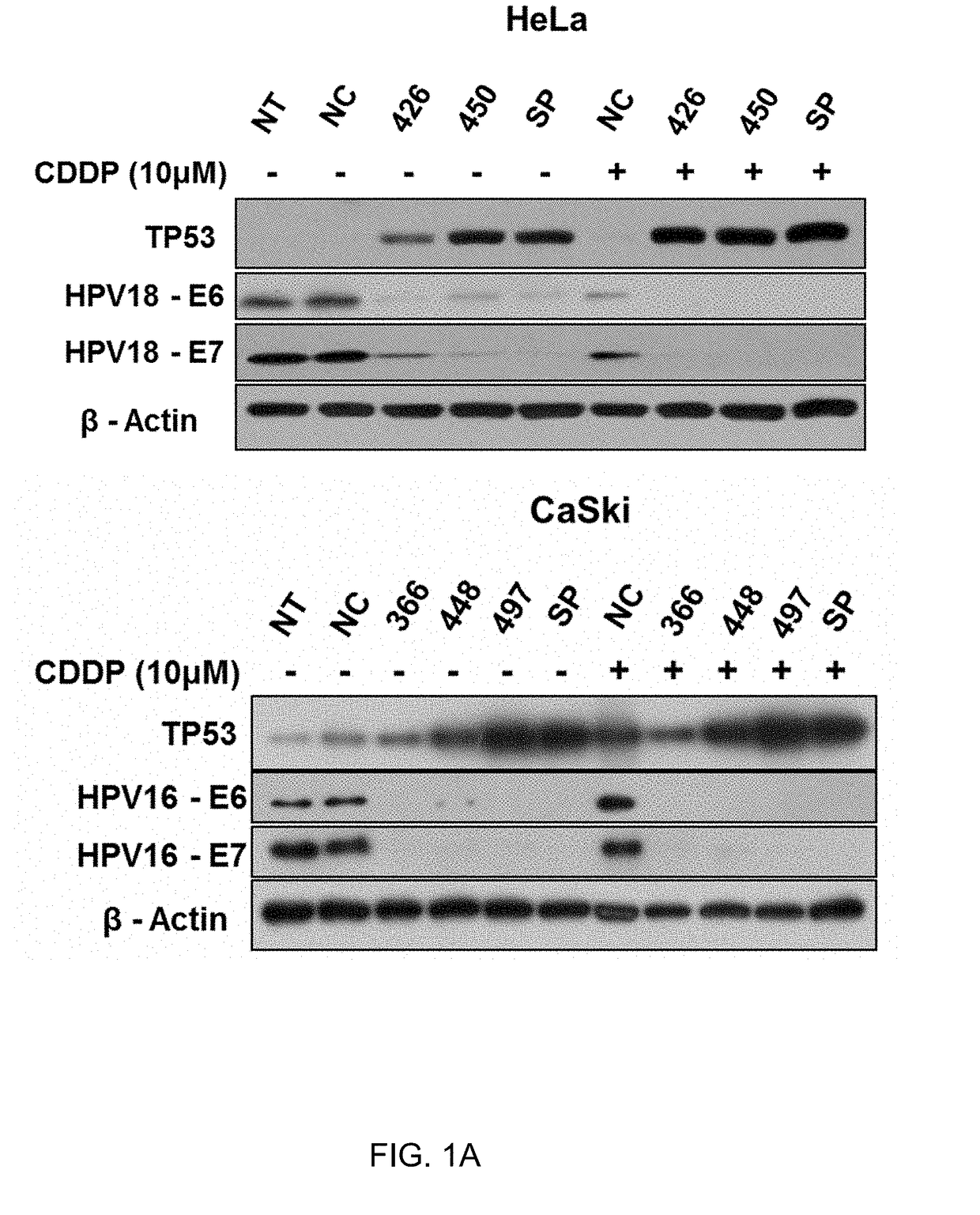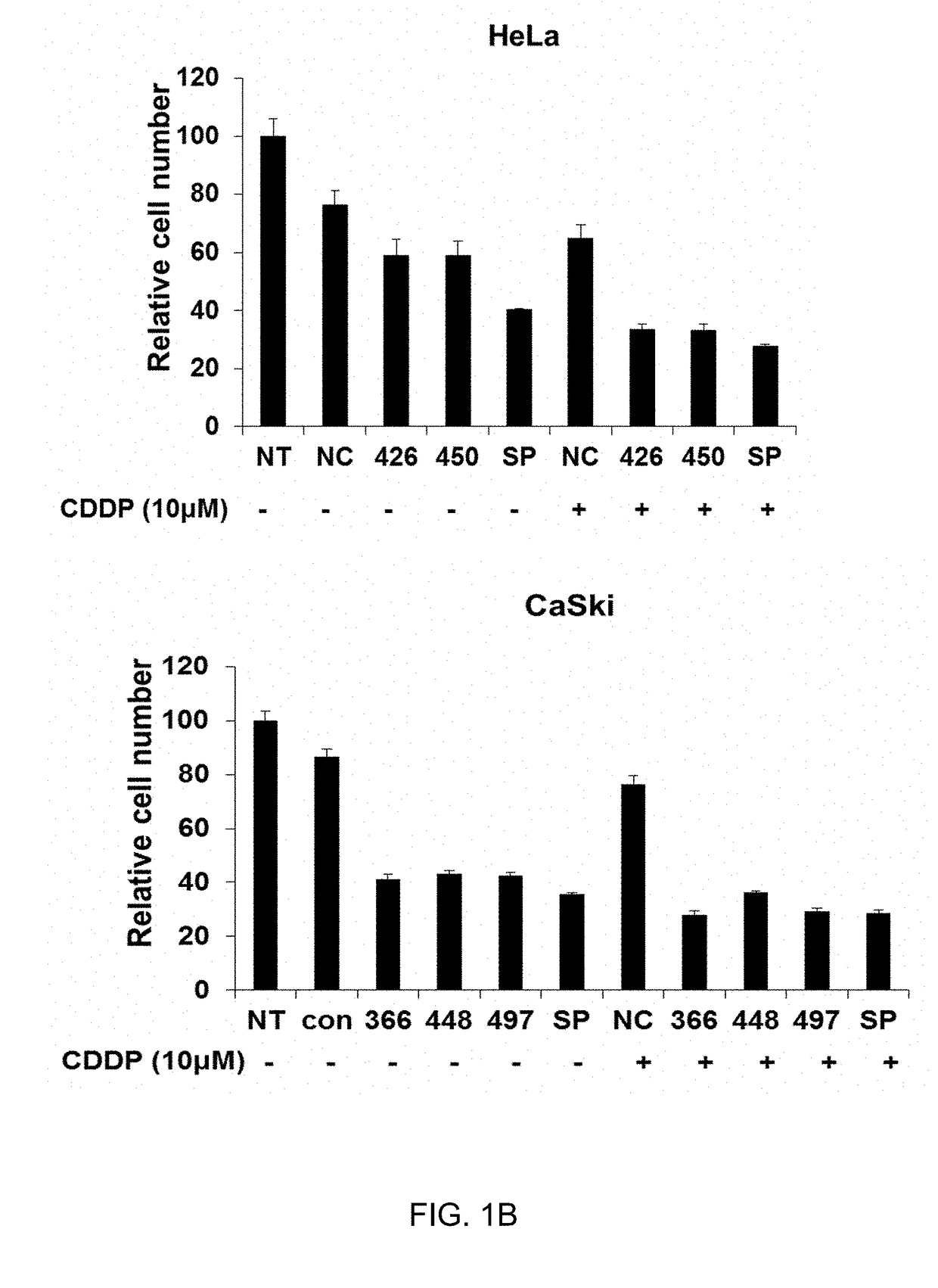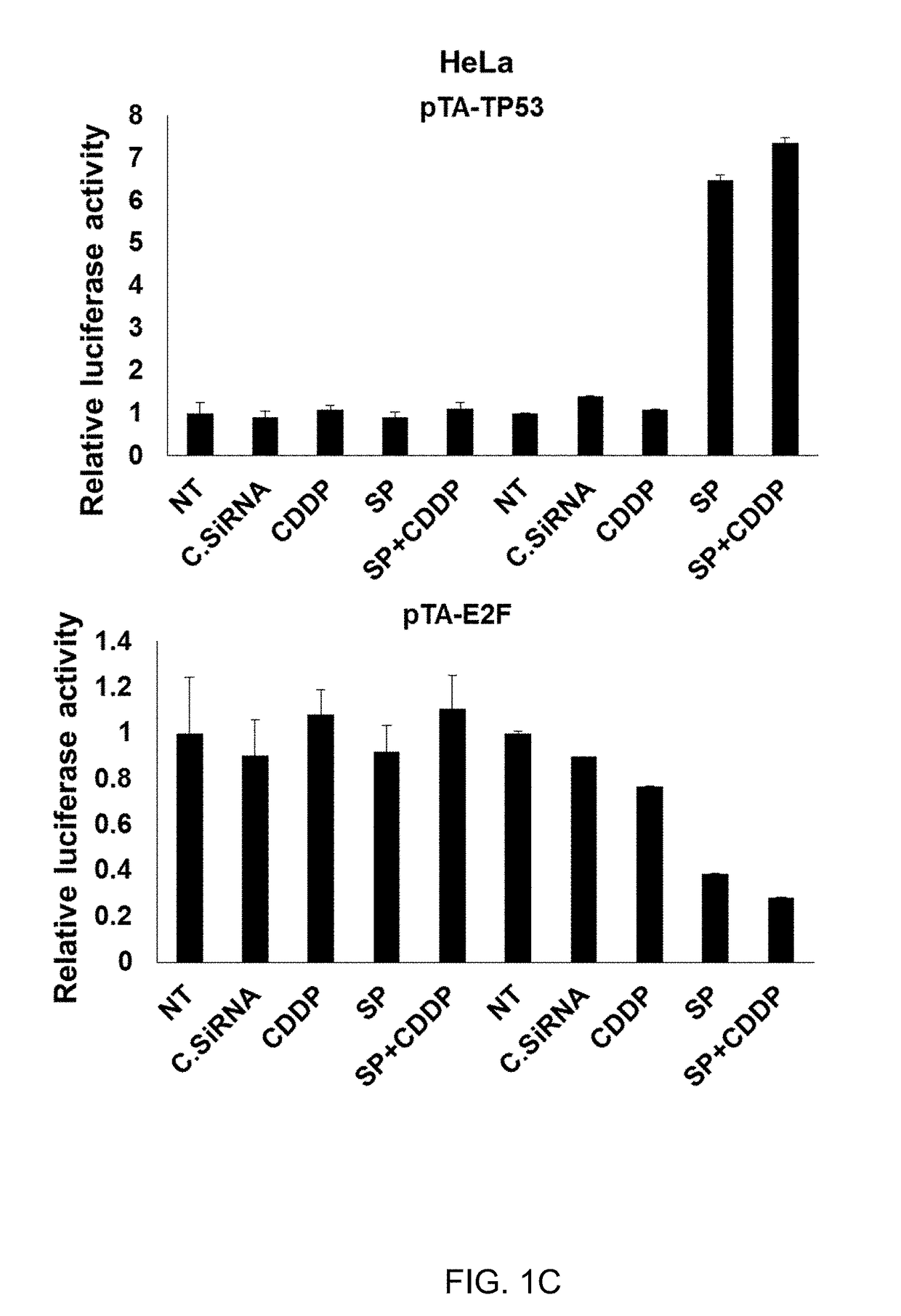METHOD FOR MAINTAINING INCREASED INTRACELLULAR p53 LEVEL, INDUCED BY PLATINUM-BASED ANTICANCER DRUG, AND APPLICATION THEREOF
a technology of intracellular p53 and platinum-based anticancer drugs, which is applied in the direction of drug compositions, instruments, genetic material ingredients, etc., can solve the problems of slowing tumor growth, hdm2 affecting the capability of p53 transcription factor, and the anticancer effect of cisplatin not showing a consistent pattern, so as to reduce side effects of drug administration, effectively inducing the death of cancer cells, and increasing the expression level of intracellular p53
- Summary
- Abstract
- Description
- Claims
- Application Information
AI Technical Summary
Benefits of technology
Problems solved by technology
Method used
Image
Examples
example 1
[0091]Effect of Cisplatin and HPV E6 / E7 siRNA on TP53 in Cervical Cancer Cells
example 1-1
[0092]Effect of HPV E6 / E7 siRNA co-administered with Cisplatin in Cervical Cancer Cells
[0093]Cervical cancer cell and HeLa cervical cancer cell lines (HeLa; ATCC CCL-2) infected with HPV type 18 virus and SiHa cervical cancer cell lines (SiHa; ATCC HTB-35) infected with HPV type 16 virus were plated on a 6-well plate with 5×104 or 1×105 cells and cultured in RPMI 1640 or DMEM medium for 24 hours at 37° C. and 5% carbon dioxide, respectively. siRNA intracellular transfection was performed with DharmaFect (Dharmacon, Lafayette, Colo., USA) according to manufacturer's instructions.
[0094]HeLa cervical carcinoma cells infected with HPV type 18 virus were transformed by pooling with each of siRNAs of 426 and 450 sequences, or respectively. The HPV type 16 virus-infected siHa cell line was transformed by pooling siRNAs of 366, 448 and 497 sequences, or respectively.
[0095]In the Western blot, whole-cell lysate was extracted with RIPA buffer (10 mM Tris (pH.4), 0.15 M NaCl, 5 mM EDTA, 1% Tri...
example 1-2
[0099]Cell Apoptotic Effects of Cisplatin and HPV E6 / E7 siRNA
[0100]To investigate the effect of cisplatin (CDDP) and HPV E6 / E7 siRNA on cell viability in cervical cancer cells, the following experiment was conducted.
[0101]Cervical cancer cells, Hela and CaSki cells were transformed with HPV E6 / E7 siRNA and cultured for 24 hours with 10 μM of cisplatin. WST analysis was performed to confirm cell viability.
[0102]Cell counts were determined by water soluble tetrazolium salts (WST) (EZ-Cytox kit; Daeil Lab Service, Seoul, Korea). EZ-Cytox solution (50 μl) added to each well of a 12-well plate and incubated for 2 to 3 hours. Live cells were measured (485 nm) using a GENios Pro microplate reader (Tecan Trading AG, Mannedorf, Switzerland) in a 96-well plate.
[0103]As a result, as shown in FIG. 1B, cell viability was decreased in the treated group compared to the group not treated with cisplatin
PUM
| Property | Measurement | Unit |
|---|---|---|
| time | aaaaa | aaaaa |
| wavelengths | aaaaa | aaaaa |
| wavelengths | aaaaa | aaaaa |
Abstract
Description
Claims
Application Information
 Login to View More
Login to View More - R&D
- Intellectual Property
- Life Sciences
- Materials
- Tech Scout
- Unparalleled Data Quality
- Higher Quality Content
- 60% Fewer Hallucinations
Browse by: Latest US Patents, China's latest patents, Technical Efficacy Thesaurus, Application Domain, Technology Topic, Popular Technical Reports.
© 2025 PatSnap. All rights reserved.Legal|Privacy policy|Modern Slavery Act Transparency Statement|Sitemap|About US| Contact US: help@patsnap.com



